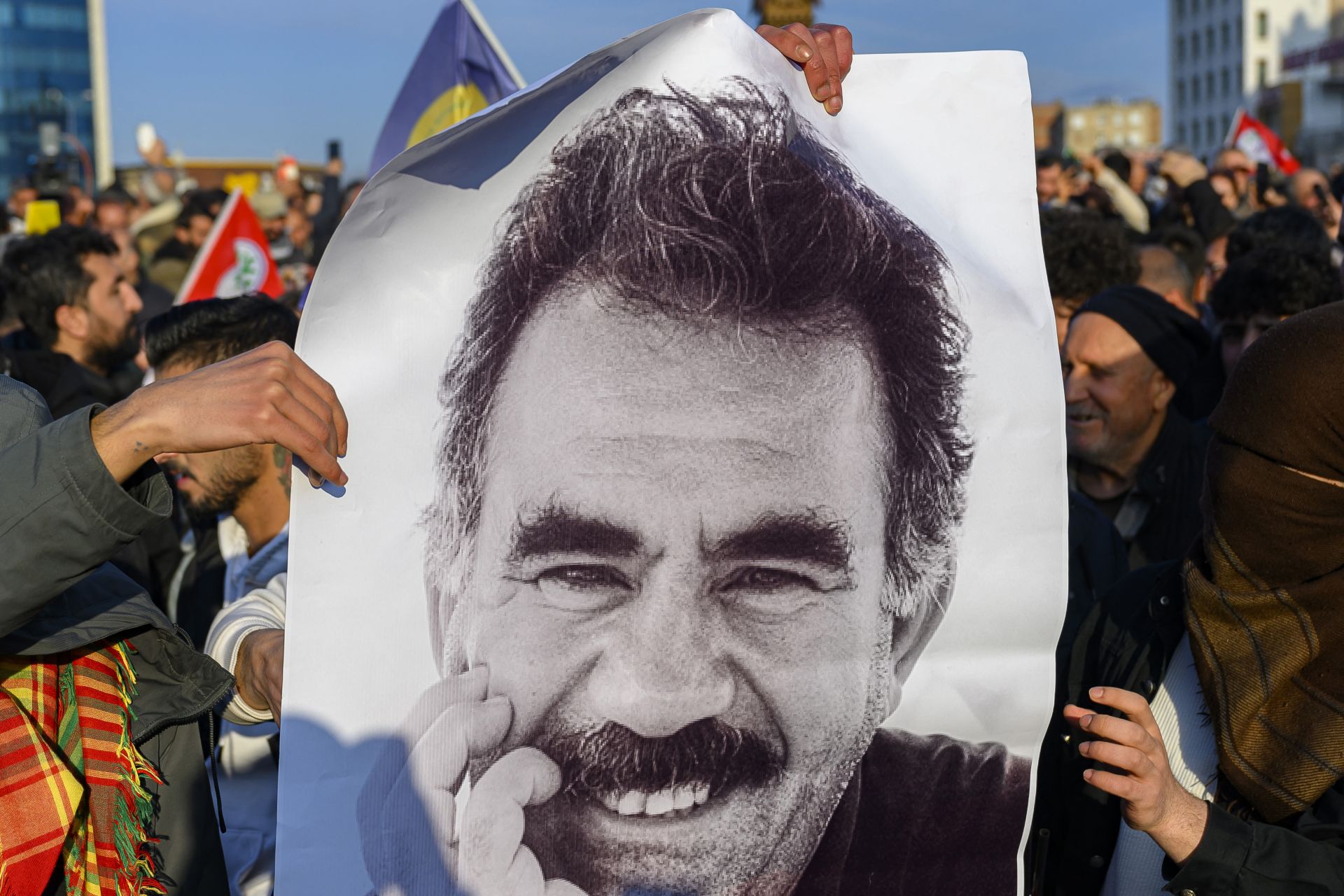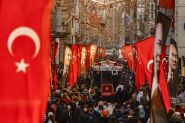- Home
- Middle East
- Five Key Dates in the Turkey-PKK Conflict

After more than 40 years of armed conflict and over 40,000 deaths, the Kurdistan Workers’ Party (PKK) begins disarming in a ceremony in Iraqi Kurdistan. This follows Abdullah Ocalan’s February appeal to end violence and pursue democratic rights for Turkey’s Kurdish minority, signaling a hopeful new chapter in a long-standing regional conflict. ©YASIN AKGUL / AFP
Fighters from the Kurdistan Workers' Party (PKK) will start laying down their arms at a ceremony in northern Iraq on Friday, two months after the militant group ended its armed struggle against the Turkish state.
The move comes in response to a historic call by jailed PKK founder Abdullah Ocalan in February, urging them to end their decades-long insurgency and embrace democratic means to defend the rights of Turkey's Kurdish minority.
Here are five key dates in the history of Ocalan and the PKK, whose violent struggle for a Kurdish homeland sparked a conflict that left more than 40,000 dead:
1978-1984: PKK formed, armed struggle begins
With Marxist-Leninist roots, the PKK was formed in 1978 by Ankara University students, with the ultimate goal of achieving the Kurds' liberation through armed struggle. They chose Ocalan, a political science student, as leader.
A Turkish military coup in 1980 forced the PKK and its leader to flee to Syria and Lebanon. The group then took up the armed struggle in 1984. Its militants trained in Lebanon's Beqaa Valley, east of Beirut, while attacking Turkish military posts and convoys.
Turkey hit back, sparking a wave of violence, especially in the Kurdish-majority southeast, that left the region in a state of near-civil war.
1999: Ocalan's arrest
Ocalan was forced to leave Syria in 1998 after Ankara threatened Damascus over its backing for the PKK, with the militant leader fleeing between several European states.
He was eventually arrested in Kenya on February 15, 1999, flown back to Turkey and sentenced to death.
There he was placed in solitary confinement on the Imrali prison island, off the coast of Istanbul.
In 2002, his sentence was commuted to life imprisonment when Turkey started the process of abolishing the death penalty as part of reforms backed by the European Union.
2013-2015: Fragile truce
Ocalan urged the PKK to lay down their arms in a letter on March 21, 2013, the Kurdish New Year, as part of talks with the government of then-prime minister Recep Tayyip Erdogan, who is now president.
Turkey's National Intelligence Organization (MIT) had also held talks with the PKK in Oslo.
But the truce collapsed in July 2015 after a deadly bomb attack in Suruc, a town near the Syrian border.
2015-2016: Clashes in southeast
Turkey bombed PKK targets in Iraq and led a vast military offensive at home. The PKK hit back with "urban warfare".
There were fierce daily battles in the southeast, including in the city of Diyarbakir, which has left a bitter legacy among the local population.
Ties deteriorated after a failed 2016 coup, with a government crackdown on Kurdish political activities and the arrest of Kurdish politicians.
Turkey also deployed troops in northern Syria to protect its frontier.
2024-2025: PKK ends armed struggle
After a decade of status quo marked by occasional attacks, a hardline nationalist ally of Erdogan extended Ocalan an olive branch, urging him to renounce violence in a shock move backed by the Turkish leader.
Indirect talks facilitated by the pro-Kurdish DEM party began, and on February 27, Ocalan made a historic call, urging his PKK to disband and his fighters to lay down their weapons in favor of a democratic struggle for the rights of Turkey's Kurdish minority.
By AFP
Read more



Comments